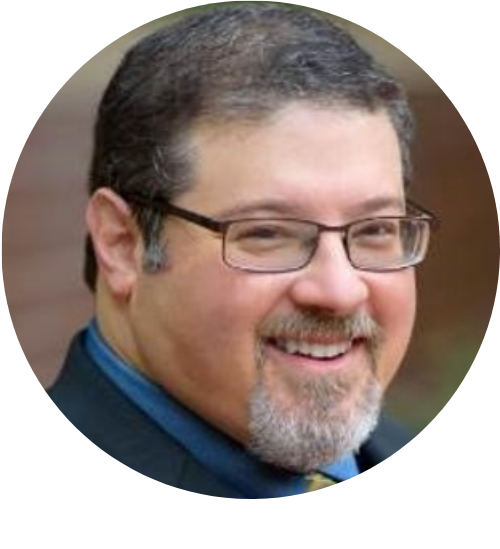Article and Video CATEGORIES
Please Note: New Treatments Have Emerged Since this Original Post
Leptomeningeal carcinomatosis, also referred to as carcinomatous meningitis, is an uncommon but certainly not rare complication in lung cancer that I consider to be among the most dreaded. This occurs when cancer cells are in the cerebrospinal fluid (CSF) that bathe and cushion the brain and spinal cord, and cancer cells deposit on the meninges, the lining around the brain and spinal cord.  (click on image to enlarge) Meningeal carcinomatosis is a diagnosis that I need to consciously remind myself to think about when I see a patient with lung cancer experience a rapid clinical decline that isn't associated with radiographic evidence of significant progression in the extracranial cancer we've been following, or when I see a patient with a constellation of neurologic signs and symptoms that just don't fit together for an anatomically-based lesion like a brain metastasis, stroke, or peripheral neuropathy. One central reason that leptomeningeal carcinomatosis is also especially dreaded because we really tend to do so poorly in treating it. Craniospinal radiation therapy (RT) has been tried, and there is the option of giving chemotherapy directly into the CSF through a series of lumbar puncture (spinal tap) procedures or through an Ommaya reservoir that is implanted into the skull to deliver chemo right into the fluid collections inside the center of the brain. Unfortunately, none of these options has been effective (particularly in lung cancer, though results in breast cancer treatment have been more favorable), and most thoracic oncology experts and general oncologists have favored a focus on comfort care as the primary intervention.
(click on image to enlarge) Meningeal carcinomatosis is a diagnosis that I need to consciously remind myself to think about when I see a patient with lung cancer experience a rapid clinical decline that isn't associated with radiographic evidence of significant progression in the extracranial cancer we've been following, or when I see a patient with a constellation of neurologic signs and symptoms that just don't fit together for an anatomically-based lesion like a brain metastasis, stroke, or peripheral neuropathy. One central reason that leptomeningeal carcinomatosis is also especially dreaded because we really tend to do so poorly in treating it. Craniospinal radiation therapy (RT) has been tried, and there is the option of giving chemotherapy directly into the CSF through a series of lumbar puncture (spinal tap) procedures or through an Ommaya reservoir that is implanted into the skull to deliver chemo right into the fluid collections inside the center of the brain. Unfortunately, none of these options has been effective (particularly in lung cancer, though results in breast cancer treatment have been more favorable), and most thoracic oncology experts and general oncologists have favored a focus on comfort care as the primary intervention.
I was intrigued at a meeting about a year ago to have heard in a conversation with Dr. Mark Socinski, renowned thoracic oncologist at UNC Chapel Hill, about a case (sebsequently described in a case history in the Journal of Clinical Oncology) of a never-smoking woman who had initially responded on Tarceva (erlotinib), then progressed and switched to chemo with Avastin (bevacizumab), and then developed worsening double vision and was ultimately diagnosed with meningeal carcinomatosis after a lumbar puncture (LP, or "spinal tap") confirmed cancer cells in her CSF (positive "cytology"). On the basis of a trial they were doing at University of North Carolina at Chapel Hill, giving "pulsed" Tarceva at 600 mg by mouth given one day every 4 days (so the same total amount as the normal daily administration, but four pills one one of every four days only), he started her on this, and she had symptomatic clearance and resolution/normalization of her cytology on a repeat LP. She tolerated this well and continued to feel better for many months. I filed this information away but unfortunately had occasion to consider it again very recently. A patient of mine, a 41 year old Caucasian woman with a remote prior smoking history, had initially presented with brain metastases as well as chest and bone disease, biopsy-proven as lung adenocarcinoma, and after initial whole brain RT and palliative RT to her painful hip lesion, I started her on chemo-based first line treatment. She had a very nice partial response, but she eventually became weary of it (I started here on cisplatin-based chemo), and I switched her to maintenance Alimta (pemetrexed). She did very well on that for about 14 months, barely noticing side effects, and doing things like asking if she can go to the gym on the same day as her chemo (so clearly feeling well). She showed modest but convincing progression several weeks ago, and we talked about further options. At that point, a leading consideration was Tarceva-based treatment, and we were actually planning to have her pursue a trial of Tarceva/Avastin (which now allows patients with treated, asymptomatic brain mets), when the screening head MRI showed diffuse meningeal enhancement highly consistent with meningeal carcinomatosis. Because she had a history of Lyme disease and had undergone several LPs in that work-up, she didn't want another if it wasn't likely to change management. At right around that time, I had sent off her tumor for EGFR mutation testing, and she has an exon 19 deletion, a known activating mutation very often associated with good responses. She started on tarceva, initially at the standard 150 mg daily dosing, since I knew that some patients with brain metastases had had very good responses of brain metastases to EGFR inhibitors. Over the next week, she had two transient episode of difficulty getting words out (known as an expressive aphasia) that resolved spontaneously after several minutes. At that point, I had her switch to the 600 mg every four day dosing schedule. It's now been another couple of weeks, and she hasn't had any recurrences of neurologic symptoms. I'll be following her closely and repeating scans soon. I'm optimistic that this is a truly valuable treatment for at least some patients with meningeal carcinomatosis. Dr. Socinski tells me that he has had a second patient who responded well in a similar situation. I'm not sure if this is a beneficial effect we're likely to only see in patients who have an EGFR mutation, but it's certainly an option I'm inclined to consider again for a situation in which it's hard to find any treatments to be very hopeful about. I wanted to highlight this in case anyone else out there sees a similar case and might see if this approach of pulsed erlotinib can provide a benefit.
Please feel free to offer comments and raise questions in our
discussion forums.
Forum Discussions
Waiting for my appointment with oncologist this morning. Thank you for the response. It helps. <3
It sounds like you’re thinking of this in a very appropriate way. Specifically, it sounds like the growth of the nodule is rather modest, though keep in mind that the change...
Hi and welcome to GRACE. I'm sorry your mom is having this difficulty. An indwelling catheter is used when the pleura space continually fills and the catheter is always there to...
Hi Oaktowngrrl, Welcome to Grace. I'm so sorry you're going through this.
Finding a reputable dedicated thoracic surgeon for lung surgery might be difficult, as it is a complex and...





Hi Blaze,
As much as I hate to say it, Welcome back Blaze. It sounds like you're otherwise feeling good and enjoying life which is a wonderful place to be. ...